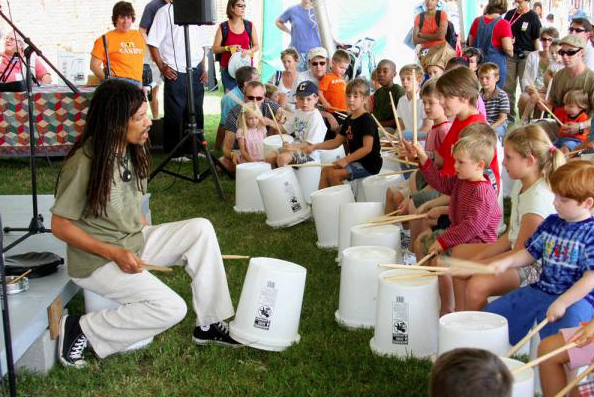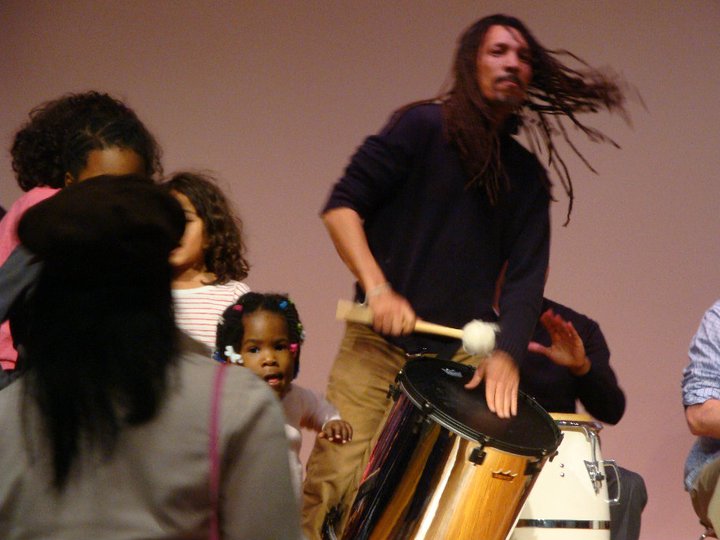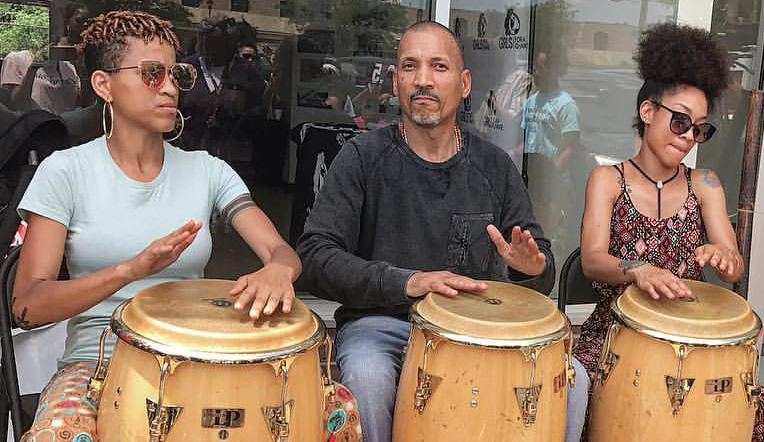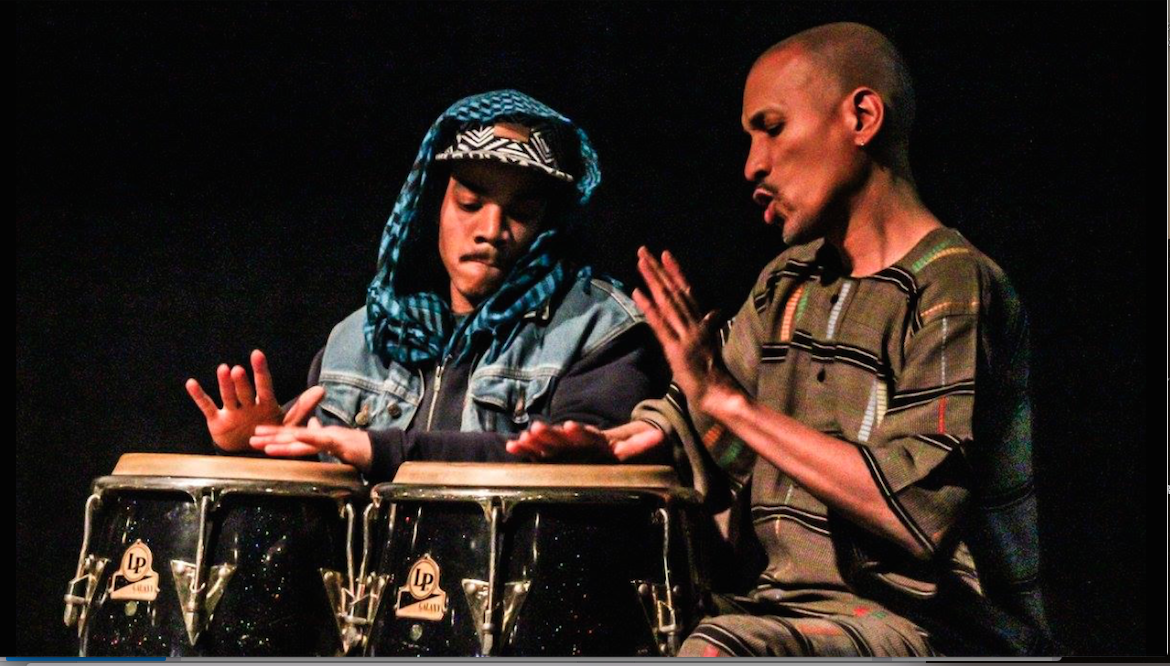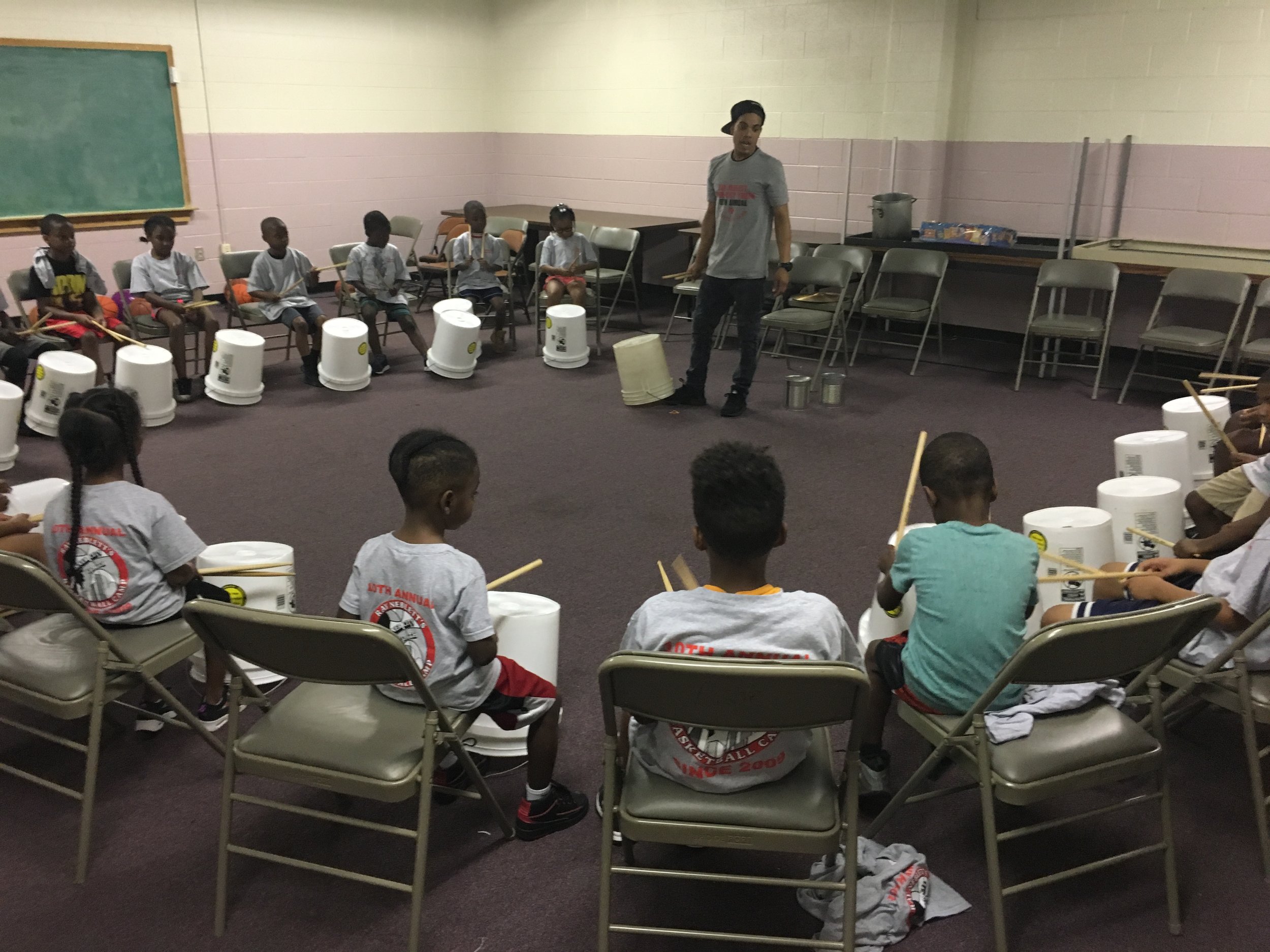Dr. Ram Bhagat is a longtime educator, arts innovator, peacemaker, and community healer who has been teaching and transforming communities for 35 years. Dr. Bhagat is committed to healing trauma in our classrooms, schools, and communities. Ram is an international conflict resolution trainer, specialist in arts integration, and certified in restorative justice. He is a master teacher of culturally responsive peacemaking circles, racial healing, trauma awareness & resilience, yoga and mindfulness.
In the early 1990s, Ram co-founded Drums No Guns, a world percussion ensemble using drumming, dance, and drama (3D) to engage youth in a process of “healing community with rhythm.” The Drums No Guns Foundation was established in 2017 to expand Dr. Bhagat’s work with youth and families traumatized from gun violence, by combining trauma healing, restorative practices, mindfulness, and artfulness. Dr. B. also started incorporating peacemaking circles along with the original junk-yard jam to create a sense of balance within schools and diverse communities.
Photo by Tania Fernandez
“When a community is out of balance, disconnection, alienation, and mistrust prevails, which causes social arrhythmia.”
Areas of EXPERTISE
Conflict Resolution
Dr. Bhagat co-founded the Richmond Youth Peace Project (RYPP) in 2004 following two separate murders of local high school students. RYPP, a collaboration between Drums No Guns (DNG) and Richmond Peace Education Center, encourages young people to learn conflict resolution techniques and to express themselves creatively, as a means to reduce the level of violence in central Virginia.
Ram also co-founded Drums No Guns to inspire people of all backgrounds to challenge the culture of gun violence. His deep commitment to gun violence prevention and the social emotional health of African American and Latinx youth,
is rooted in the tragic gun death of his younger brother.
“The drum lifts us. The drum connects us. The drum is a powerful force. I use the drum to unite people of all races, of all ages, of all abilities…” – Dr. Ram Bhagat
Arts integration
Creativity flourishes in classrooms and after school programs where arts play an essential role. Arts Integration generates divergent, wholistic, and cooperative thinking; for example, learning the rhythm of chemical bonding through Salsa and Capoeira or interpreting “The Trail of Enslaved Africans” through drumming, dance, drama, and digital storytelling compels students to use their imaginations. According to Dr. Bhagat – an innovator in the Science, Technology, Engineering, Arts, and Mathematics movement (STEAM), a recipient of multiple grants from Partners in the Arts, and a graduate of the Kennedy Center’s Changing Education Through the Arts (CETA) program – “the arts empower students to connect with the essence of their humanity.“
Restorative Justice in education
Structural barriers have replaced more blatant racial obstacles since the Brown v Board of Education decision. However, students of color are still forced to attend intensely segregated schools and subjected to disproportional school discipline practices. Restorative Justice in Education (RJE) focuses on cultivating caring and respectful relationships that support a healthy academic, social, and emotional learning environment. Dr. Bhagat brings a trauma informed lens to restorative justice along with a culturally responsive approach that values, respects, and empathizes with students of all abilities and backgrounds, as they strive for equity and excellence in education.
“Freedom is never voluntarily given by the oppressor; It must be demanded by the oppressed.”
photo by Larry Jackson
trauma-Responsive schools
There is an urgent need to address the root causes of trauma in our schools and communities across the nation. When Adverse Childhood Experiences (ACES) along with adverse cultural experiences are not addressed within the safety of a cultural ecosystem that emphasizes social emotional learning and racial healing, there can be detrimental and re-traumatizing effects. Dr. Bhagat designs, implements, and evaluates trauma-responsive, mindfulness based restorative practices (MBRP), as Manager of School Culture and Climate Strategy for Richmond Public Schools. He believes that “everyone in the school division is a potential catalyst for healing and rebuilding the community.”







